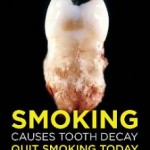If you want to avoid a stroke, you can start by living a healthier life.

Eat well and stay fit to keep a stroke at bay. Courtesy of NPR
Shed those extra pounds if you’re overweight, exercise regularly, eat more fruits and vegetables and less salt, say guidelines just released by the American Heart Association and American Stroke Association. Oh, and don’t smoke, please. Although drinking a little wouldn’t hurt and might help.
There’s a lot of advice for preventing a first stroke, most of it for doctors. There are specific recommendations for blood pressure targets, diabetic patients (who are at higher stroke risk) and when to recommend aspirin (only for people at especially high risk.
The guidelines, which were last revised in 2006, run nearly 70 pages. The executive summary is six-pages long!
But the most important advice is pretty simple. Living better can cut the risk of a first stroke by 80 percent, Duke’s Dr. Larry B. Goldstein tells Medscape. “There’s virtually nothing that we can do with medicine or interventions of any kind that’s going to have that kind of impact, so that I think is of paramount importance,” says Goldstein, a stroke specialist who chaired the guideline group.
Prevention is key because more than three-quarters of the nearly 800,000 people who have strokes in this country each year are having first strokes.
“Between 1999 and 2006, there’s been over a 30 percent reduction in stroke death rates in the United States and we think the majority of the reduction is coming from better prevention,” Goldstein says in a statement.
If you or someone close to you has a stroke, it’s important to get to the hospital as quickly as possible. Most strokes are caused by blood clots. A drug that dissolves clots can go a long way toward saving lives and reducing disability if it’s given in time, as NPR’s Richard Knox reported last year.
Finally, some hospitals in the country are certified as stroke centers, meaning they provide state-of-the-art care. If you’d like to find one nearby, check out this database.
Original article courtesy of NPR’s Health Blog
 New York: the city that never smokes. Mayor Michael Bloomberg signed a law Tuesday banning smoking in parks, beaches and busy gathering places like Times Square, the health department said.
New York: the city that never smokes. Mayor Michael Bloomberg signed a law Tuesday banning smoking in parks, beaches and busy gathering places like Times Square, the health department said.